According to today’s Utility Dive, “Dominion Energy filed its 15-year, long-term integrated resource plan (IRP) for Virginia on Friday, with three separate models to increase solar, wind and energy storage capacity, including mandates from recent clean energy state legislation,” and with “Plans B, C and D all tak[ing] into account the VCEA and other legislation passed this spring.” The headline from the Utility Dive story, that “Dominion jacks up renewables and storage in Virginia IRP, following landmark clean energy rule,” is accurate to a degree, but with some important caveats, such as:
- As Dominion points out in its IRP, prior to passage of the VCEA, “On February 11, 2020, the Company’s parent company—Dominion Energy—announced a significant expansion of its greenhouse gas emissions reduction goals, establishing a new company-wide commitment to achieve net zero carbon dioxide (“CO2”) and methane emissions by 2050.” So, how much Dominion was already planning to do prior to passage of VCEA is hard to say, but they’re *claiming* that they were. Of course, they might have just seen the writing on the wall, and figured they should get ahead of it and possibly gain some public relations value or whatever.
- Plan B represents progress from where we’re at now, but it’s problematic, as it “preserves approximately 9,700 MW of natural gas-fired generation,” which Dominion *claims* – dubiously – is needed “to address future system reliability, stability, and energy independence issues.” In contrast, Plan C – while similar to Plan B – “retires all
Company-owned carbon-emitting generation in 2045, resulting in close to zero CO2
emissions from the Company’s fleet in 2045.”
With that, here are a few graphics and highlights from Dominion’s IRP.
- First, check out the following graphics, by Utility Dive, depicting Plan B and Plan C. Note that I’ve left out Plan D, which Dominion says “does not represent a reasonable estimate of solar generation’s expected potential”; and also Plan A, which Dominion says ” is presented for cost comparison purposes only in compliance with SCC orders,” but “does not represent a realistic state of relevant law and regulation.”
- As you can see, Plan B does crank up solar, adding 15.9 gigawatts (GW) over the next 15 years and 31.4 GW over the next 25 years. Plan C is very similar in this regard, also adding 15.9 GW over the next 15 years, and 32.5 GW over the next 25 years.
- In both Plans B and C, offshore wind increases by 5.1 GW over the next 15 years, but then…not adding any more after 2034? That’s unambitious; compare it to Adam Siegel’s estimates, which pencil in 11 GW of offshore wind by 2035 and 16+ GW by 2040 as achievable. Also note that the Virginia Sierra Club is quoted in the Utility Dive story, “We think that there could be room for more offshore wind, more onshore wind, and that could negate what [Dominion thinks] is their need for additional fracked gas plants” and “Sierra Club also noted that Dominion is not aiming to surpass the suggested amount of offshore wind included in the VCEA.” So, yes, Dominion almost certainly could do a *lot* more offshore wind than the 5.1 GW they’re talking about.
- Note the major additions in energy storage — 2.7 GW in additions over the next 15 years in both Plans B and C, and even more over the next 25 years (5.1 GW in Plan B, 9.9 GW in Plan C).
- According to Dominion: “Over the long term, however, achieving the clean energy goals of Virginia, North Carolina, and the Company will require supportive legislative and regulatory policies, technological advancements, grid modernization, and broader investments across the economy. This includes support for the testing and deployment of technologies such as large-scale energy storage, hydrogen, advanced nuclear, and carbon capture and sequestration, all of which have the potential to significantly reduce greenhouse gas emissions.”
- Of course, what Dominion doesn’t mention here – and really doesn’t emphasize sufficiently throughout the entire IRP – is the massive potential for energy efficiency improvements, well beyond the relatively non-ambitious goals in the VCEA (“5% total annual energy savings by 2025”), as well as distributed energy resources (DER), such as rooftop solar. Why wouldn’t Dominion want to emphasize efficiency or DER? Probably because both cut into demand for their centrally controlled, top-down, utility-scale power generation resources. Which, in turn, is why Virginia needs much stronger “decoupling” of utility profits from power generation.
- I’d argue that Dominion is far too pessimistic about what would be required (i.e., “Doubling transmission import capacity”) to achieve Plan C, in part because of what I just mentioned in the last bullet point – lack of emphasis on energy efficiency and DER, plus the unambitious offshore and onshore wind targets. Of course, it’s not surprising that Dominion wants to hang on to its profitable natural gas business, but it’s a bad idea both for the environment and, ultimately, for the Virginia economy, as much of this gas infrastructure is likely to end up as money-wasting “stranded assets.“
- Bottom line: We’re seeing progress on moving towards clean energy and efficiency, but not nearly fast enough, whether to meet climate goals or for economic reasons. Which is why the Virginia General Assembly will have to keep a close eye on Dominion in coming years, while not resting on its laurels after passing the VCEA this past session, but looking to strengthen it – such as in the energy efficiency and DER areas – in coming sessions. Basically, we should be shooting not for the unambitious Plan B, but more like Plan C – or, better yet, a Plan C+++. As for VCEA, it needs to be the floor, not the ceiling.
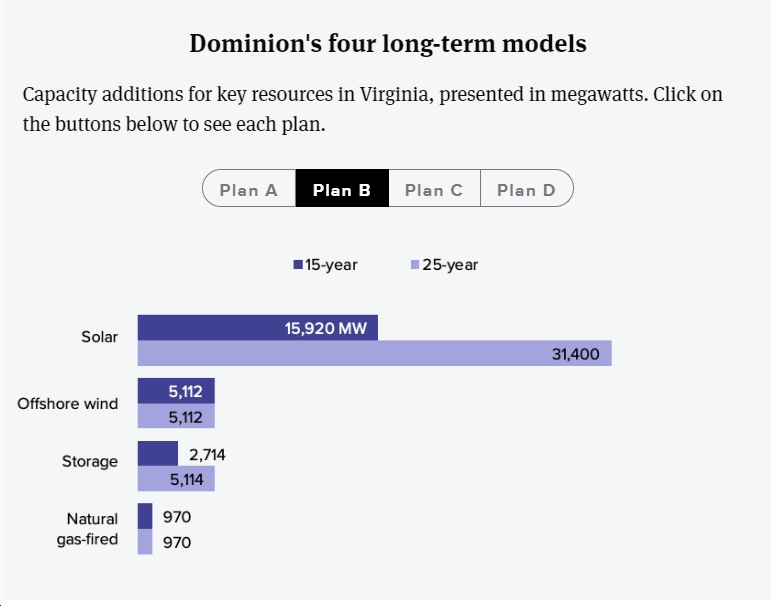
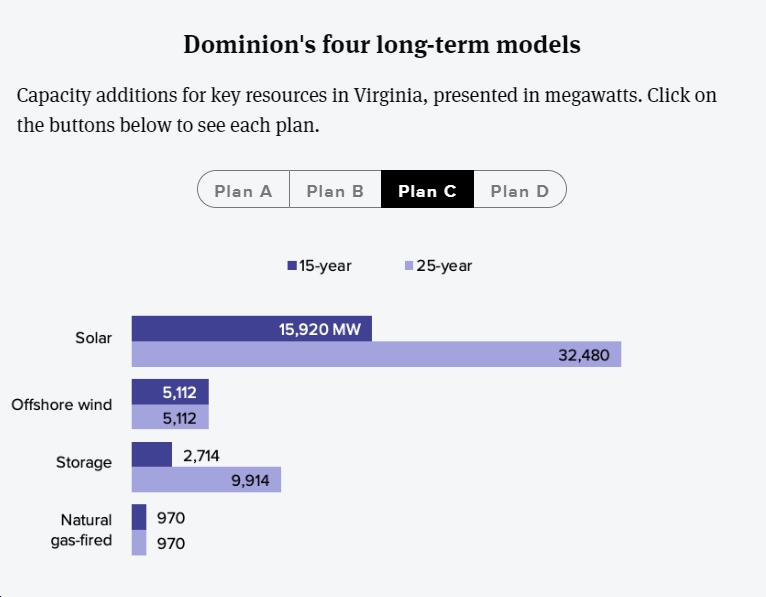
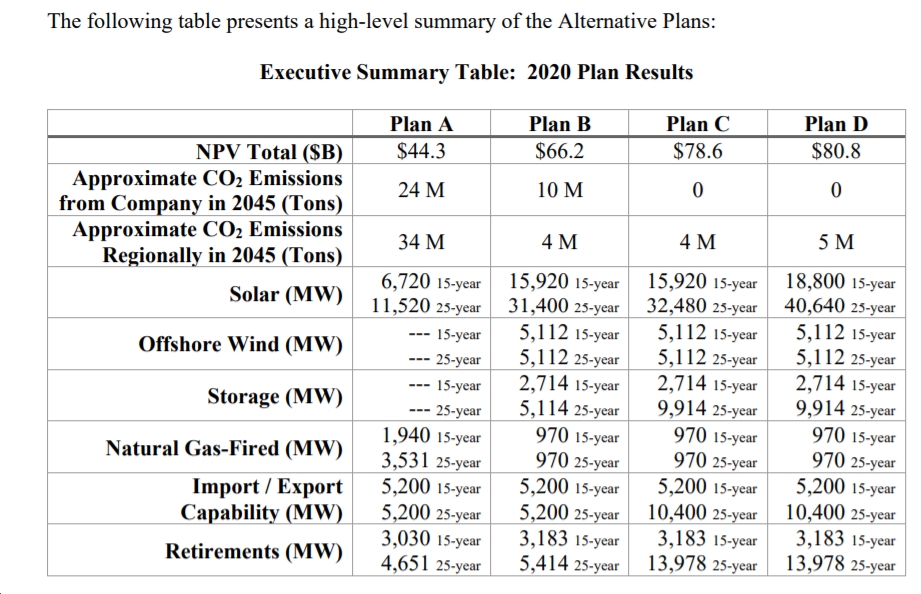
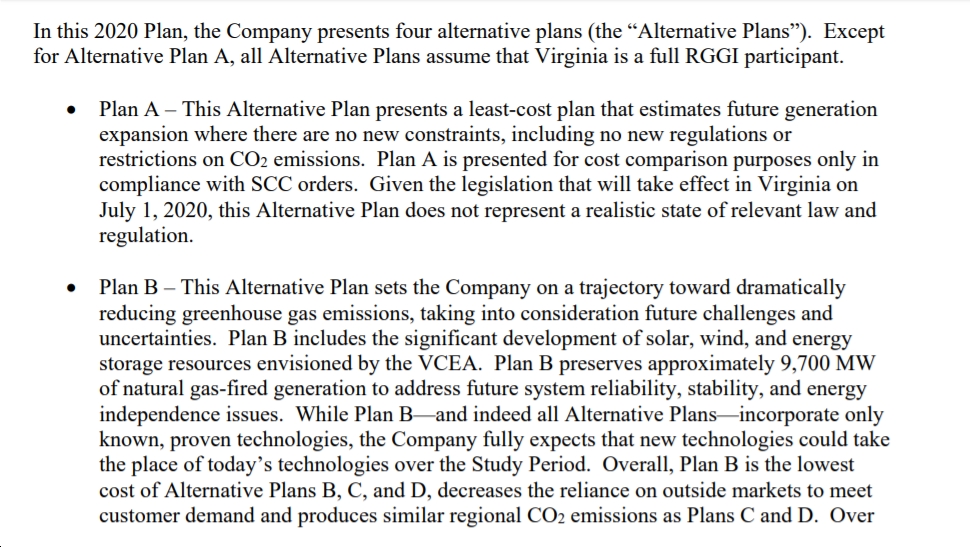
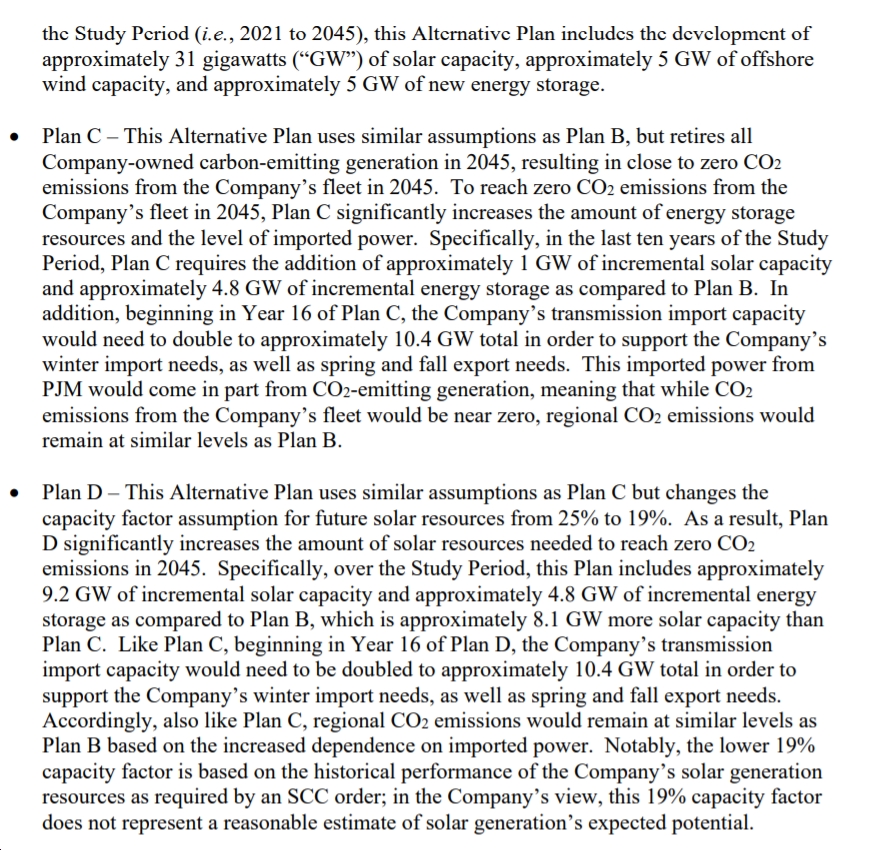
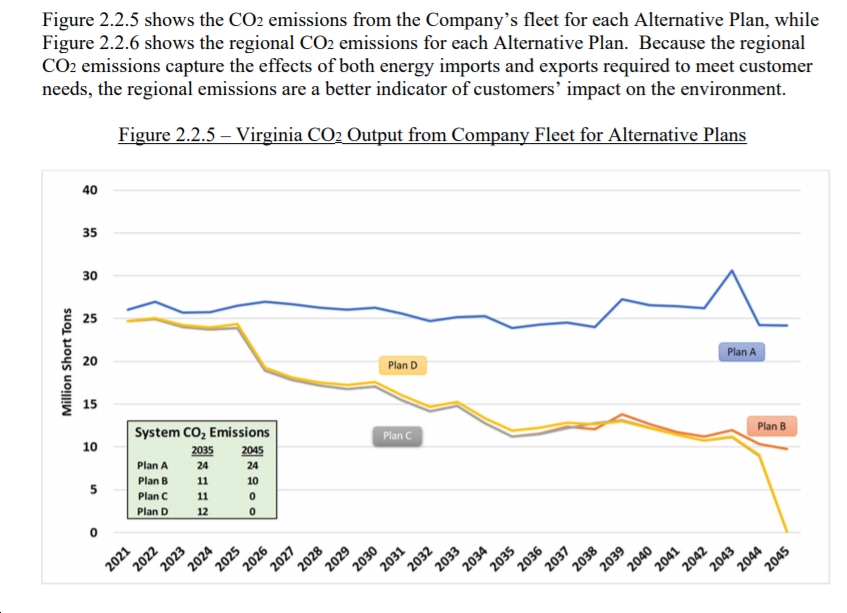
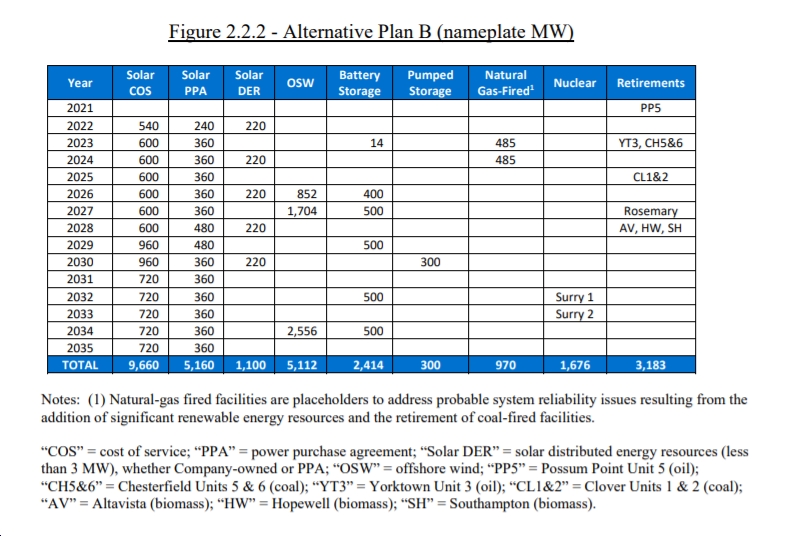
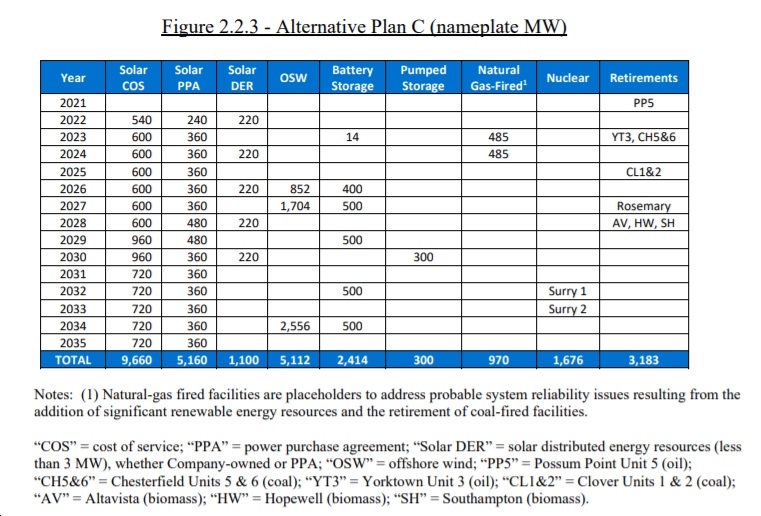


![Video: Ivy Main Says “the hostility to offshore wind is really just [Trump]; nobody else feels this way…he will be gone and then we will get back on track”](https://bluevirginia.us/wp-content/uploads/2026/02/axiosivymain-238x178.jpg)
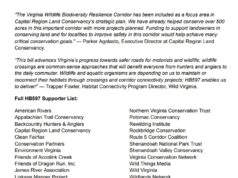
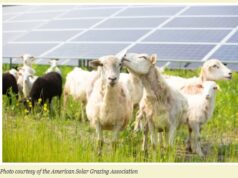






![Video: Ivy Main Says “the hostility to offshore wind is really just [Trump]; nobody else feels this way…he will be gone and then we will get back on track”](https://bluevirginia.us/wp-content/uploads/2026/02/axiosivymain-100x75.jpg)
